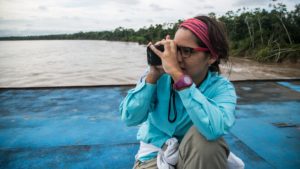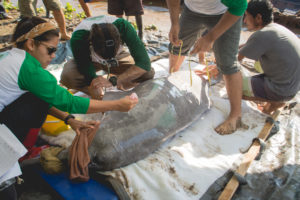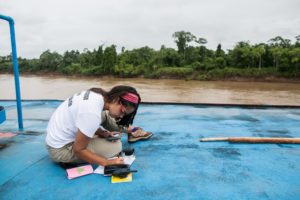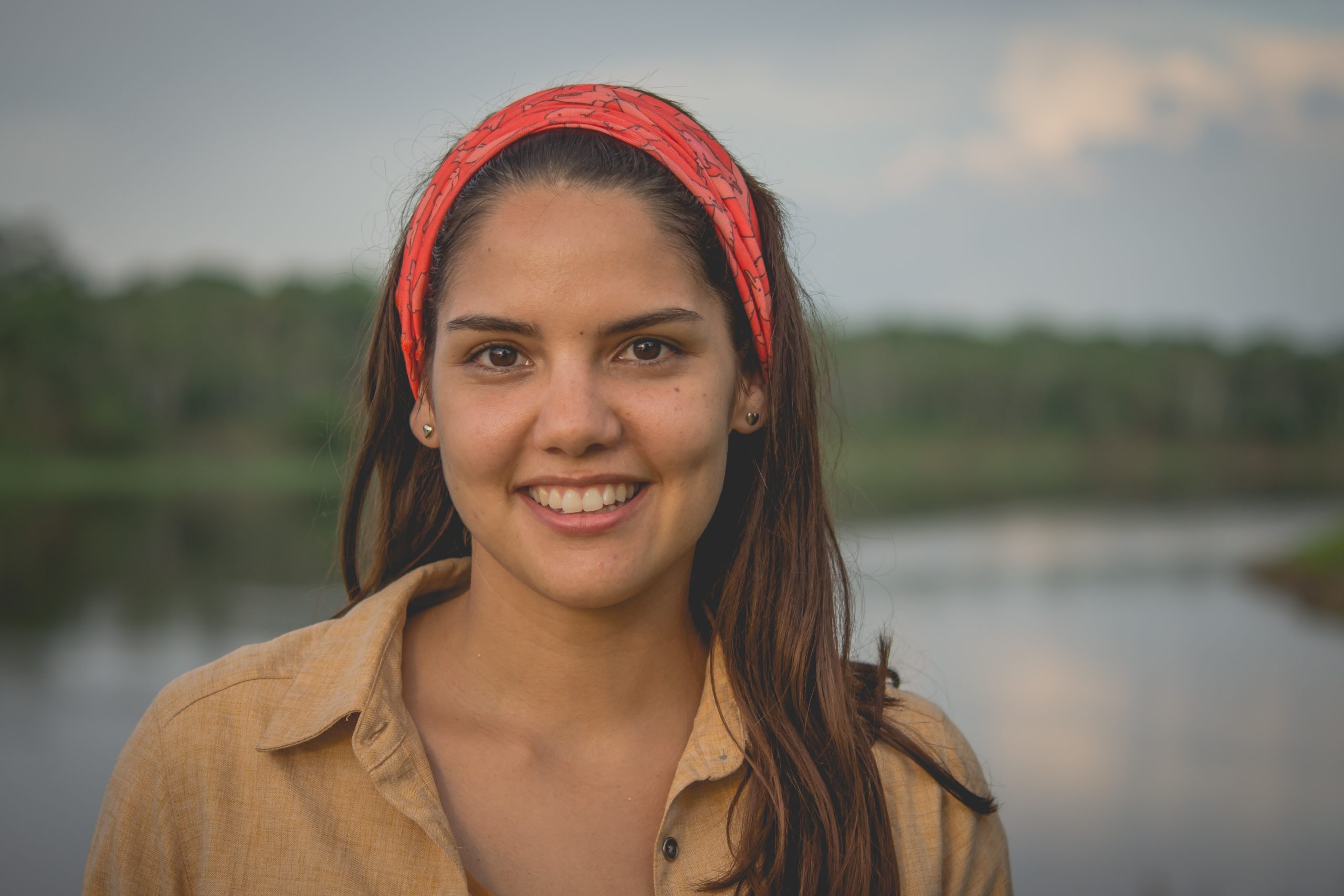Our world-leading marine research underpins a wide range of undergraduate and postgraduate programmes: Research-led teaching | Exeter Marine | University of Exeter. In this #MScGraduateInFocus series we are looking back on some of our MSc graduates who have excelled in marine conservation around the world since studying with us.
Today we meet Elizabeth Campbell, MSc Conservation and Biodiversity graduate (2014) and now an associate researcher with ProDelphinus and PhD student at the University of Exeter!

Hi Elizabeth! First off, why don’t you tell us what attracted you to study your MSc at the University of Exeter, Penryn Campus?
I grew up close to the ocean, enjoyed it and wanted to have a career that was related to it. I enjoy having a job with a purpose, a job that has a positive impact in the world and that improves it in some measurable way.
The University of Exeter offered a programme that aligned to my interests and the faculty had experience working in areas that were of my interest (small scale fisheries, developing countries, vertebrates). In the MSc at Penryn I found an advisor that was interested in my research topic, and a course that would strengthen my knowledge and future work. The MSc teaches you how to plan a project, to fundraise, implement, present and share your results as well as publish them. You finish your MSc with experience in every project aspect.

So, what did you enjoy most about studying your MSc?
The biggest highlights for me, include the Field Course in Kenya, the wide variety of practical methods classes throughout the degree and being able to complete my thesis on river dolphins!
Cornwall is a fantastic place to study! Everything you need is close. Natural surroundings inspire your work and give you space to relax. University courses take advantage of their natural surroundings as well.

How did the MSc help prepare you for your career in research?
The Key Skills module has given me many important tools! From delivering presentations, how to network at conferences and branding yourself online to writing a grant and writing and publish a paper.
The staff are approachable and available to answer questions. The course environment is friendly amongst students and teachers.
Finally, Do you have any advice for anyone thinking of applying to any of our programmes at the University of Exeter?
To not hesitate, apply and take advantage of a great course set in a beautiful location.
Thanks Elizabeth!
You can follow Elizabeth (@Eliicampbell) and ProDelphinus (@prodelphinus) on Twitter

If you want to find out more about any of our suite of #ExeterMarine Masters and Undergraduate courses use the links below!
- NEW: MSc in Marine Vertebrate Ecology and Conservation
- MSc in Conservation and Biodiversity
- MSc in Conservation Science and Policy
- MSc in Evolutionary and Behavioural Ecology
- MSc in Sustainable Development
- MSc in Environment and Human Health
- MSc in Renewable Energy Engineering
- BSc Marine Biology
- BSc Zoology
- BSc Environmental Science
- BSc Conservation Biology and Ecology
- BSc Evolutionary Biology
- BSc Animal Behaviour
- BEng Renewable Energy Engineering

